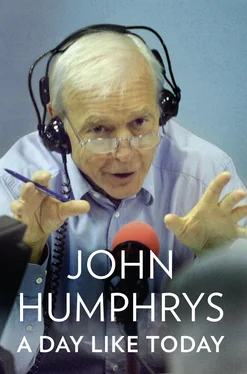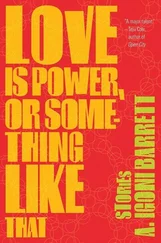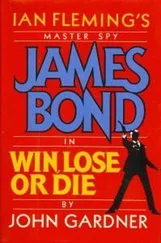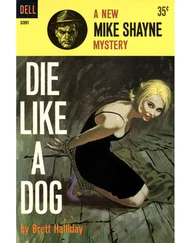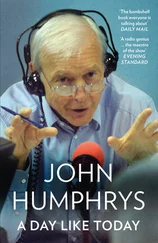The right man was Charles Wheeler, perhaps the greatest foreign correspondent the BBC has ever had. When I was still in nappies, Charles was a captain in the Royal Marines, second in command of a secret naval intelligence unit that took part in the Normandy invasion of 1944. He went on to become the longest-serving foreign correspondent in the history of the BBC. He was, quite simply, brilliant. A small man with a commanding presence, he had steely grey hair, piercing blue eyes, a brain the size of a house and a natural authority born of decades of reporting on crises around the world. When Charles delivered a report the audience trusted him. And they were right to.
The first time I worked with him was at the Republican National Convention in Miami Beach in 1972 when Nixon was nominated to run for a second term as president. We knew there were going to be demonstrations. Nixon was a divisive figure at the best of times and protests over the Vietnam War were still tearing the country apart. We suspected that the protests in Florida would turn violent and my film crew and I had equipped ourselves with gas masks in case the police used tear gas. They did. I put mine on and strode confidently into the fray, gas swirling around us, breathing my own filtered air confidently. Except that it was not filtered. Within a minute I was in agony. I had never used a gas mask before and nobody had warned me that they’re not terribly effective unless you make certain that the bung is inserted at the point where the air gets in. Mine wasn’t and I had not checked. The result: I was breathing in undiluted tear gas. By the time I realised what was happening and ripped the mask off my face I was a blubbering mess. Somebody told me helpfully after I’d recovered that it’s possible to die if you do something that stupid. I never did it again. The other thing I learned from that convention was how to make the most powerful man in the world look an idiot – courtesy of Charles Wheeler.
National party conventions are awe-inspiring demonstrations of American politics at their majestic best and cringe-making worst. There is a bit of a gap in rhetorical brilliance between Williams Jennings Bryan in 1896 and Donald J. Trump 120 years later. The big issue at the 1896 convention was whether the United States should have gold coinage as well as silver. The moneyed classes said yes, the poor farmers said no. Bryan was on the side of the poor: ‘Having behind us the commercial interests and the labouring interests and all the toiling masses, we shall answer their demands for a gold standard by saying to them, you shall not press down upon the brow of labour this crown of thorns. You shall not crucify mankind upon a cross of gold.’
What a phrase eh? Hard to imagine anything like it coming from the lips of some more recent candidates. Perhaps the most memorable sound bite from the Trump convention was the endless baying of ‘Lock her up, lock her up!’ from the floor whenever the name of Hillary Clinton was mentioned.
What made the Nixon convention of 1972 memorable for me was not so much the big speech itself as how it reached us. The party managers always make sure that the candidate’s speech is distributed to the media an hour or so before the candidate himself delivers it. It is eagerly awaited. We were in the BBC office – perhaps a dozen of us including Charles Wheeler – when our copy was handed to us by a couple of Nixon’s staff. Charles started to read it. He stopped, looked puzzled, and began again. And then he started laughing.
‘For God’s sake!’ he spluttered. ‘They’ve given us the wrong copy. This is Nixon’s own personal copy. It’s the one he will be reading from!’ And so it was. Between almost every paragraph were instructions to Nixon as to how, exactly, he should deliver it:
Serious expression here
Look as if you really care
Smile! This is meant to be funny
Squeeze out a tear at this point … VERY sad face!
Nobody believes this: show that YOU do!
Stern look at the delegates!
ENJOY this bit!
I may not recall every instruction in precise detail, but this was gold dust for Charles. One of Nixon’s big PR problems was that so many Americans believed he did not have a sincere bone in his body. Not for nothing was he known across the nation as ‘Tricky Dickie’. This would be deeply embarrassing. If he had to be instructed in how to react to words that were supposed to be coming from the heart, what would America make of it? Charles was scribbling furiously, trying to get as much of it down as possible, and then the inevitable happened. The door to our little office burst open and a posse of red-faced Nixon staffers barged in.
‘Give it back!’ they shouted.
‘Not on your life!’ we shouted back.
Then they saw it on the table and made a grab for it. Charles got there first. They tried to snatch it from his hands and he threw it across the office. Chris Drake, one of my radio colleagues, caught it and they tried to grab it from him so he threw it to me and I threw it to someone else. The farcical scene must have lasted for a few minutes and Charles (by now holding it again) tried to make peace.
‘Look,’ he said, ‘I am going to report this and there’s absolutely no way you are going to stop me. If you bring in security guards you’ll get it back in the end but there’s going to be an almighty stink. Freedom of the press remember? So leave it with me for another few minutes and I’ll give it back to you.’
What else could they do?
An hour later Charles was sitting in front of a BBC camera not just telling his audience what Nixon had to say at the convention, but also what his team did not want us to know. This was television gold.
Part of the problem for any journalist covering the Watergate story – let alone a new boy like me, taking over from the great Charles Wheeler, who was being sent to Brussels – was trying to come to terms with the notion that the president of the United States, with his vast experience of politics, could have been so breathtakingly stupid as to destroy everything he had spent his life trying to achieve. And in such a crass manner. This was a man who had been written off by most of America when he was defeated by John F. Kennedy in 1960 and who had fought back in the face of an often viciously hostile press. The Washington establishment, who worshipped the ground Kennedy had walked on, regarded Nixon as a lying, scheming lowlife and they made no attempt to conceal it. They treated him with contempt.
But he won the presidency in 1968 and again four years later. I followed him and the Democratic contender George McGovern around the country in 1972 from one rally to another and the result was never in doubt. McGovern himself knew he had no chance. It was one of the biggest landslides in American history. I remember one rally in a Midwestern state that removed any doubts I might have had. We filmed McGovern getting off his plane and walking through the obligatory, but pretty sparse, crowd of supporters. Most were cheering but one of them was clearly not a McGovern fan. He hurled some abuse at the candidate as he walked past. McGovern stopped, went back to him, and said something that left the man silent and looking stunned. Later I asked him what McGovern had said. ‘He told me: “Suck my cock buddy!”’ I swear he looked impressed. But a candidate who can do that knows he’s not going to be president.
It was clear even to a novice like me that as the Watergate saga rolled on Nixon was in deep trouble. Once we discovered that he had been secretly recording everything that was said in the Oval Office we knew how deep. So did he. For me the most telling moment – and certainly the most surreal – came when he made a trip to, of all places, Disney World in Orlando Florida. It was November 1973 and the country was being rocked by a relentless stream of accusations – mostly unearthed by the Washington Post reporters Carl Bernstein and Bob Woodward – of endless clandestine and illegal activities by members of Nixon’s administration. What nobody had actually said, explicitly, was that Nixon himself was a crook. He was, after all, the president of the United States. ‘Crook’ was not a term to be used lightly – and certainly not without copper-bottomed proof. And yet Nixon used that word himself.
Читать дальше
